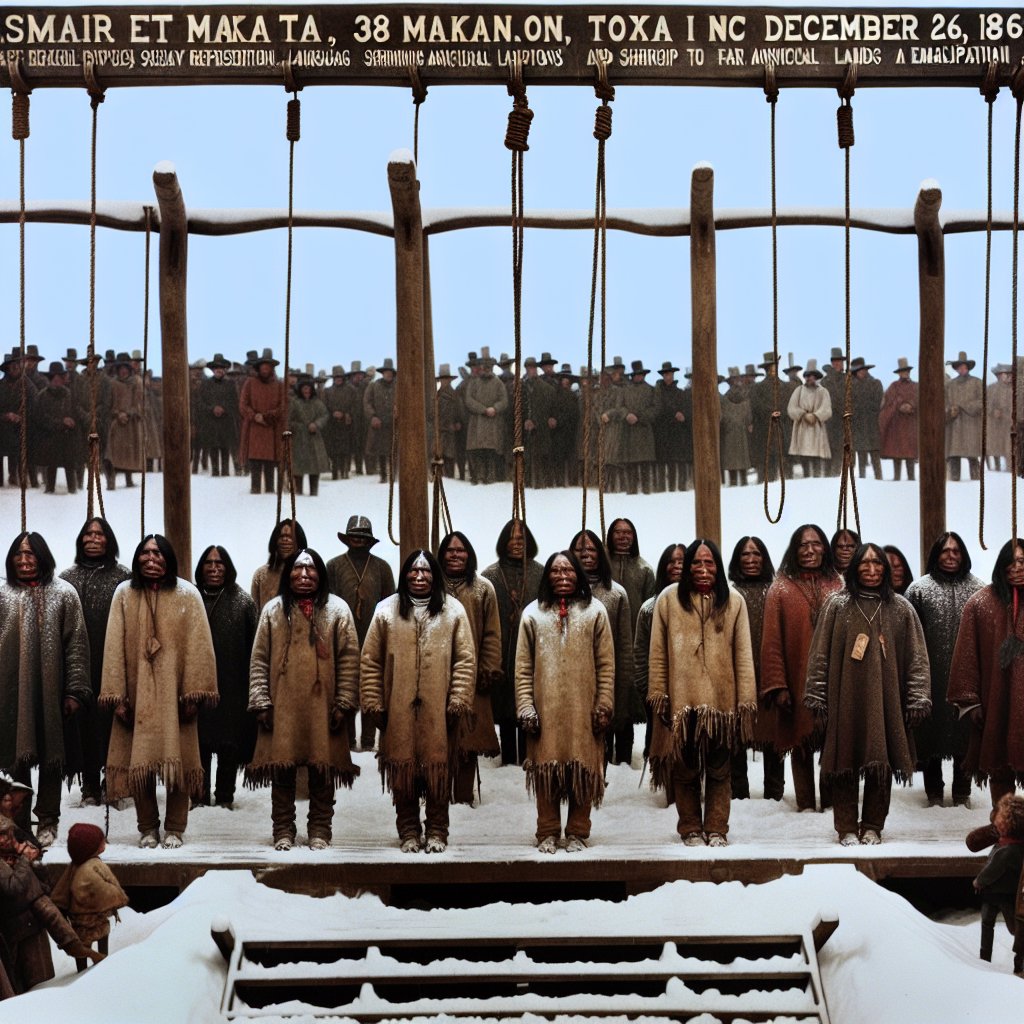Content created by AI
Remembering the Forgotten: The Tragic Execution of the Dakota 38 Ordered by Abraham Lincoln
On December 26, 1862, a grim chapter was etched into the pages of American history. In Mankato, Minnesota, 38 Dakota men met their fate at the gallows, sanctioned by an order from President Abraham Lincoln. This event, marking the largest mass execution on U.S. soil, stood in stark contrast to Lincoln’s legacy as the emancipator of slaves, painting a different picture of a president caught in trials of justice and political complexities.
Some 4,000 spectators bore witness to this dark spectacle. Accounts recall the somber scene where the condemned men joined hands, singing a traditional Dakota song—an act of unity and defiance in the face of death.
The executions were the culmination of the U.S.-Dakota War of 1862, a violent clash fueled by unfulfilled treaty commitments and shrinking Dakota lands under U.S. policy. Hostilities spanned over 37 days and resulted in numerous deaths and substantial Dakota incarcerations. More than 2,000 Dakota were imprisoned, whereas 303 were initially sentenced to death after biased and unjust military tribunals.
President Lincoln, confronted with a genocidal death toll, intervened, adjusting the criteria of who would face execution, leaving 39 designated to die—later reduced to 38 following a reprieve. The criteria adjustments by Lincoln were apparent efforts to balance the outcry for justice against fears of settler rebellion, reflecting the uneasy place of political expediency in matters of life and death.
Carol Chomsky and Mark Charles, among others, have criticized the trials' fairness, pointing to the lack of adequate representation, language barriers, questionable authority, and a failure to treat the Dakota as a sovereign nation's warriors deserving appropriate war conduct.
As the condemned Dakota men climbed up to the scaffold, an eerie calm presided over the multitude that gathered. Each man's name echoed as they expressed solidarity just prior to the drum taps that signaled the fatal moment when the platform dropped, leaving an indelible mark on the collective memory of the nation, and especially within Indian Country.
The event is contrasted by the Emancipation Proclamation coming into effect just six days later, a juxtaposition that underscores the complexities of Lincoln’s presidency and 19th-century American policy.
Indeed, this occurrence represents a neglected narrative within the broader sweep of American history, challenging us to confront the injustices committed in nation-building's wake. The Dakota 38's execution offers a profound lesson on the casualties of broken promises and the painful legacy of cultural misunderstanding and mistreatment.
Levi "Calm Before the Storm" Rickert (Prairie Band Potawatomi Nation), through Native News Online, has been instrumental in revitalizing the memory of the Dakota 38, ensuring that their story does not fade into obscurity. It is a call for remembrance, understanding, and ultimately, reconciliation for a past that too often goes unrecognized.










